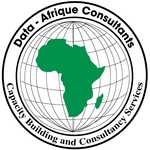|
|
Training Course On Remote Sensing And GIS In Climate Change Food Security And Agriculture
USD 3,950 |
Venue: Nairobi
The primary goal of the study course is enhancing the skills of technical team needed within Food Security Analysis, weather evaluation and also farming by giving them having a comprehension on the usage of spatial as well as Earth Observation (EO) info as something to incorporate information about climate change, farming, and food protection in an innovative and meaningful means.
COURSE OBJECTIVES
At the end of course participants should be able to:
- Understand the fundamental ideas of GIS as well as Remote Sensing
- Apply RS and GIS for designing implementations of big scale early warning systems
- Understand ideas and frameworks in analysis of Food Security.
- Understand ideas and primary frameworks in analysis of Climate Change.
- comprehend ideas and main concepts in Agriculture
- comprehend the connection between climate change, farming as well as food protection
- Application of GIS as well as Remote Sensing as Decision assistance application for agriculture, food security, and Climate Change.
DURATION
10 Days
WHO SHOULD ATTEND
The course targets people who require additional skills in remote sensing, climate change and the use of GIS.
COURSE CONTENT
Key Course concepts
- Introduction to food security, climate change, and Agriculture.
- GIS for food security, climate change, and Agriculture.
- Introduction to R.S and GIS ideas in ?climate change, Food and Agriculture security
- GIS project style and setup
- Sources of GIS information for CCAFS
GIS Software Uses
- Integration of data from various sources to GIS
- Application of handheld GPS for data collecting
- Geospatial Analysis in Agriculture & food security
Mapping
- Mapping areas of climate change and food insecurity
- Remote Sensing in CCAFS
- overview of Remote sensing
Remote sensing
- ?Remote sensing applications
- Satellite Image Acquisition
- Image interpretation
Image
- Image classification
- Change detection
The effects of climate change on Agriculture & food security
Application of GIS in predicting Climate change
- Responding to climate change, Mitigation & Adaptation
- Impacts of climatic change on Agriculture and food availability.
- •?Policy Framework addressing local weather change; ? Kyoto protocol process and also existing local laws
GIS & Remote Sensing in Agriculture
- Grid sampling, managing zones, practical yield targets
- Remote realizing (RS) for the site-specific control.
- Yield tracking and mapping
Assessment and Analysis
- Food Security Assessment ?
- The application of satellite imagery for ?analyzing food security
- Assessing the impacts of food insecurity
- Climate change sources of ?uncertainty
GPS & Basic GPS skills
- Varities of GPS
- Integration of GPS field information in GIS database
- GPS setup, Capturing information from surveys
- GPS data download along with related tasks
Public Participatory GIS & Use of Mobile Phones to Collect Data
- Availble methods
- Analysis of Participatory GIS
- Climate predictions used by the communities
- Applying GIS to come up with hazard-aware societies
- Use of Mobile Phones for GIS Data assortment of Assessment and also Surveys
GENERAL NOTES
- This course is delivered by our seasoned trainers who have vast experience as expert professionals in the respective fields of practice. The course is taught through a mix of practical activities, theory, group works and case studies.
- Training manuals and additional reference materials are provided to the participants.
- Upon successful completion of this course, participants will be issued with a certificate
| Nairobi | Dec 09 - 20 Dec, 2024 |
Class Session: 08:00:am - 16:00:pm
| USD 3,950.00 | (Kigali) |
| USD 5,500.00 | (Dubai) |
| USD 3,000.00 | (Nairobi) |
| USD 3,000.00 | (Mombasa) |
DUNCAN KARIUKI +254723360025



